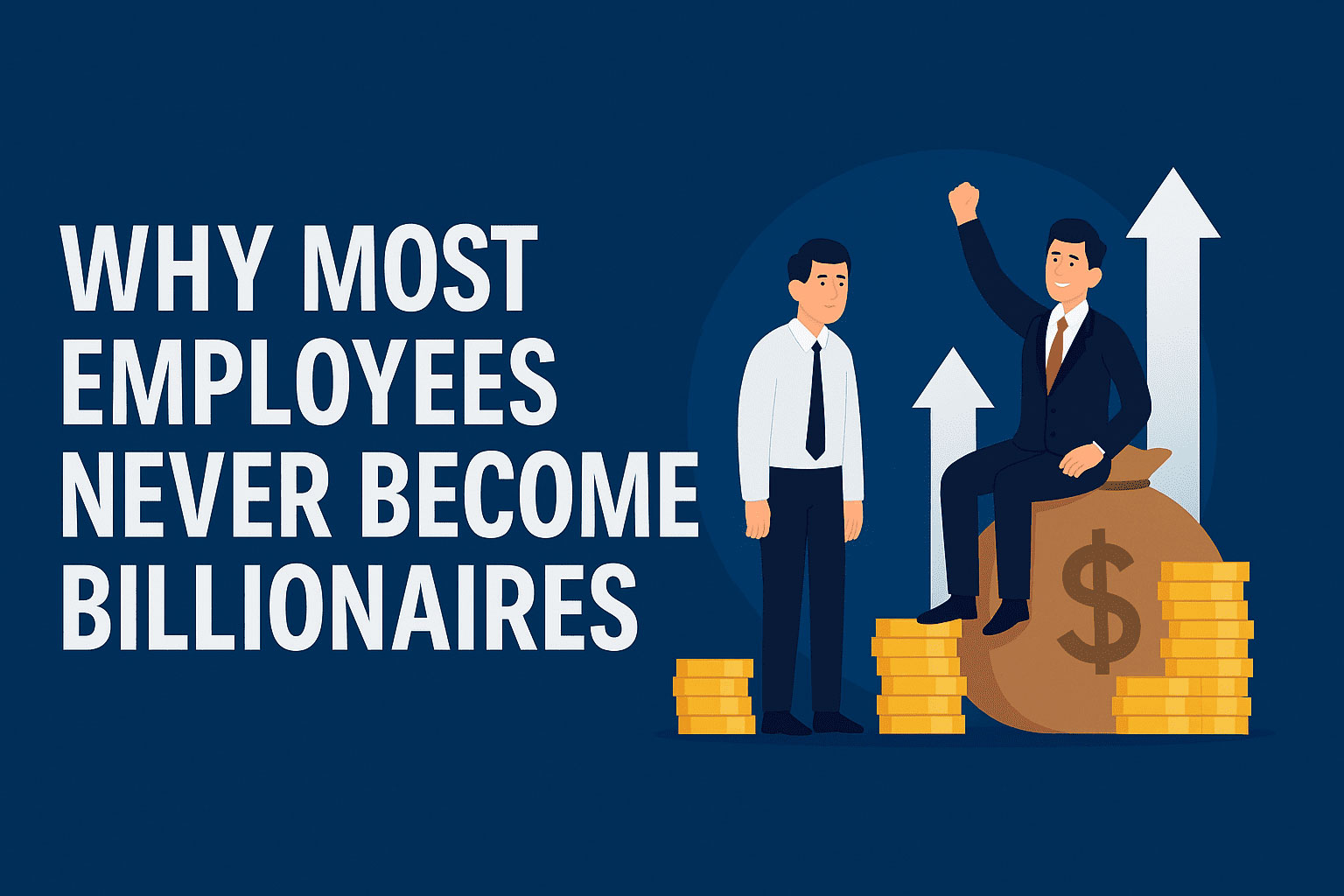Introduction
Most of us dream of wealth, freedom, and success. Yet, while millions of people work tirelessly every day, only a tiny fraction ever become billionaires. Why is that? Why don’t employees even high-paid ones reach billionaire status?
In this blog, we’ll break down the core reasons why most employees never become billionaires, explore the billionaire mindset, and offer insights that anyone can apply to shift their path toward financial independence.
1. Employees Trade Time for Money
The most significant limitation of a traditional job is the exchange of time for a fixed salary. No matter how skilled or hardworking you are, your income is often capped by:
- Your position or job role
- Company salary structures
- The number of hours you can work in a day
Billionaires don’t trade time for money they build systems that make money for them, even when they’re asleep.
2. Lack of Equity Ownership
Employees usually don’t own a part of the business they work for. They help build wealth but for the company or its founders, not themselves.
Billionaires, on the other hand, create or invest in equity:
- Founders own shares in the companies they build
- Investors hold stakes in growing startups or assets
- Equity appreciates and multiplies wealth over time
Without equity, it’s nearly impossible to build exponential wealth.
3. Limited Risk-Taking
Most employees are trained to value job security over risk. But billionaires often embrace risk:
- Starting a company
- Making bold investments
- Betting on new markets or technology
High reward usually comes with high risk and employees are typically risk-averse.
4. No Leverage
Leverage is the ability to multiply your results without increasing your effort. Billionaires use different kinds of leverage:
- Capital leverage: Using money to earn more money
- People leverage: Building teams that scale operations
- Technology leverage: Creating software, apps, or platforms that reach millions
Employees rarely use leverage they rely only on their own effort.
5. Income vs. Wealth Mindset
Employees often focus on earning more income, while billionaires focus on building more wealth.
- Income is short-term and taxed heavily
- Wealth comes from assets like real estate, stocks, or businesses that grow over time
A shift from income-thinking to asset-thinking is crucial.
6. No Scalable Impact
Billionaires create products or services that reach millions or even billions of people.
Employees contribute to a business but rarely create scalable value on their own.
If your work can only affect a limited number of people, your wealth will also have a limit.
7. Comfort Zone Mentality
The path of a billionaire requires obsession, vision, sacrifice, and resilience traits that most employees aren’t trained or incentivized to cultivate.
Comfort, routine, and predictable paychecks often outweigh the desire for disruptive change.
Final Thoughts: Can Employees Become Billionaires?
Yes but only when they stop thinking like employees and start thinking like creators, investors, and owners.
To change your trajectory:
- Learn about financial literacy
- Invest in assets, not just savings
- Consider entrepreneurship, even on the side
- Build leverage through technology, content, or capital

